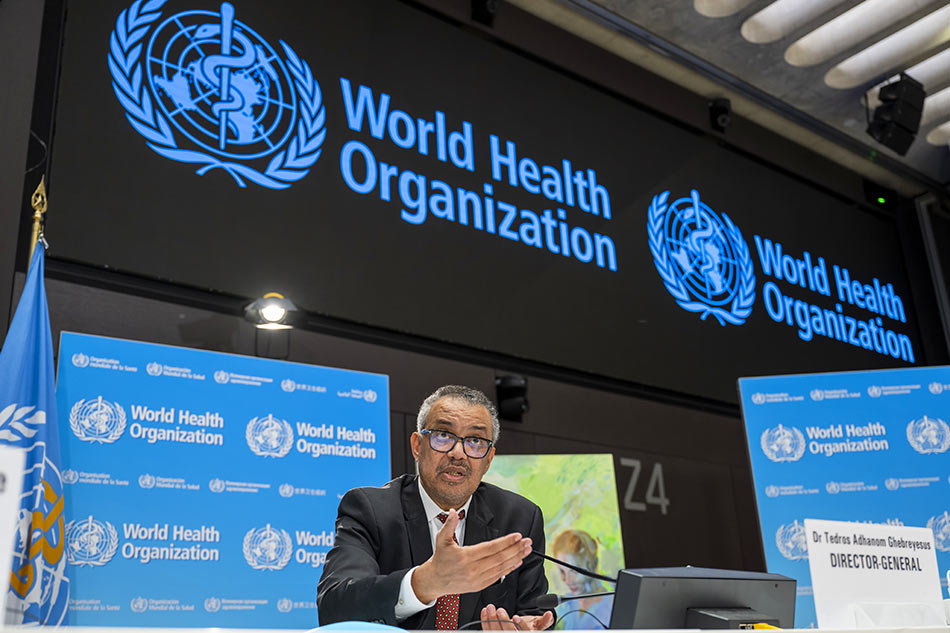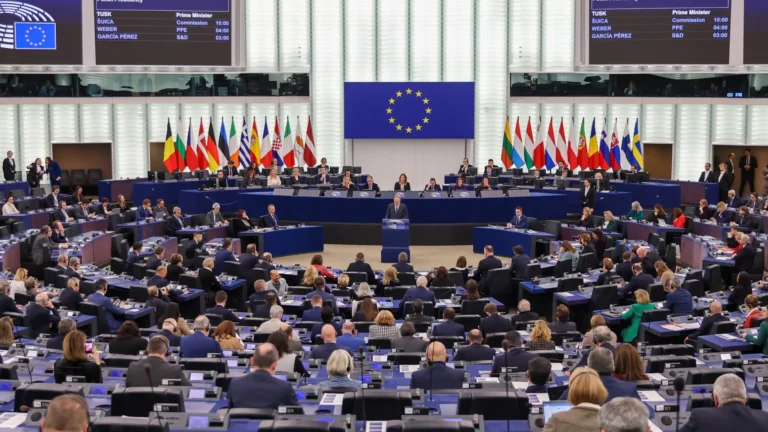WHO in ‘Stop the Bleeding’ Phase, Says Europe Director

(Director General of the World Health Organization (WHO) Tedros Adhanom Ghebreyesus speaks to journalists during a press conference about the Global WHO on World Health Day and the organization’s 75th anniversary at the WHO headquarters in Geneva, Switzerland, 06 April 2023. EPA-EFE/MARTIAL TREZZINI)
The World Health Organization (WHO) is taking urgent steps to mitigate the impact of the United States’ withdrawal, implementing short-term cost-cutting measures while considering broader structural changes. WHO Europe’s Director, Hans Kluge, informed the European Parliament on Wednesday that the agency is now assessing its financial and operational needs in response to the sudden loss of U.S. support.
Kluge warned against the politicization of global health, emphasizing the need for stability and diplomacy in addressing public health challenges. The withdrawal, initiated by President Donald Trump, not only eliminates a significant financial contribution but also disrupts access to critical data and healthcare personnel worldwide.
WHO Director-General Dr. Tedros Adhanom Ghebreyesus previously acknowledged that while the agency could adapt to the loss of U.S. government funding, the repercussions would be profound. “The EU now more than ever has to stand strong on those values of humanity,” Kluge stated, calling for increased international cooperation.
WHO Looks to Alternative Funding and Structural Reform
During his address, Kluge outlined a three-phase response strategy. The first phase, described as the “stop the bleeding” stage, involves drastic cost-efficiency measures reminiscent of those taken during the COVID-19 pandemic. “We are going into crisis mode,” he explained, noting that extraordinary circumstances demand extraordinary actions.
Once the immediate financial shortfall is managed, WHO will shift focus to securing alternative funding sources. Speculation is mounting over potential new contributors, with the European Union, China, and private donors emerging as likely candidates to fill the funding gap.
The final phase, Kluge noted, will involve a fundamental reassessment of WHO’s structure and priorities. “The WHO is doing too much; that is a fact. We are not a large NGO. We must return to the basics,” he stated, advocating for a more streamlined approach that prioritizes scientific expertise, technical guidance, and essential health services.
The U.S. withdrawal has triggered broader concerns among member states, with Argentina now also considering an exit. Earlier this month, President Javier Milei instructed his foreign minister to begin the withdrawal process, citing concerns over WHO’s alleged political influence during the COVID-19 pandemic.
As WHO navigates this period of uncertainty, its leadership remains focused on stabilizing operations and maintaining its role as a key player in global health governance.


